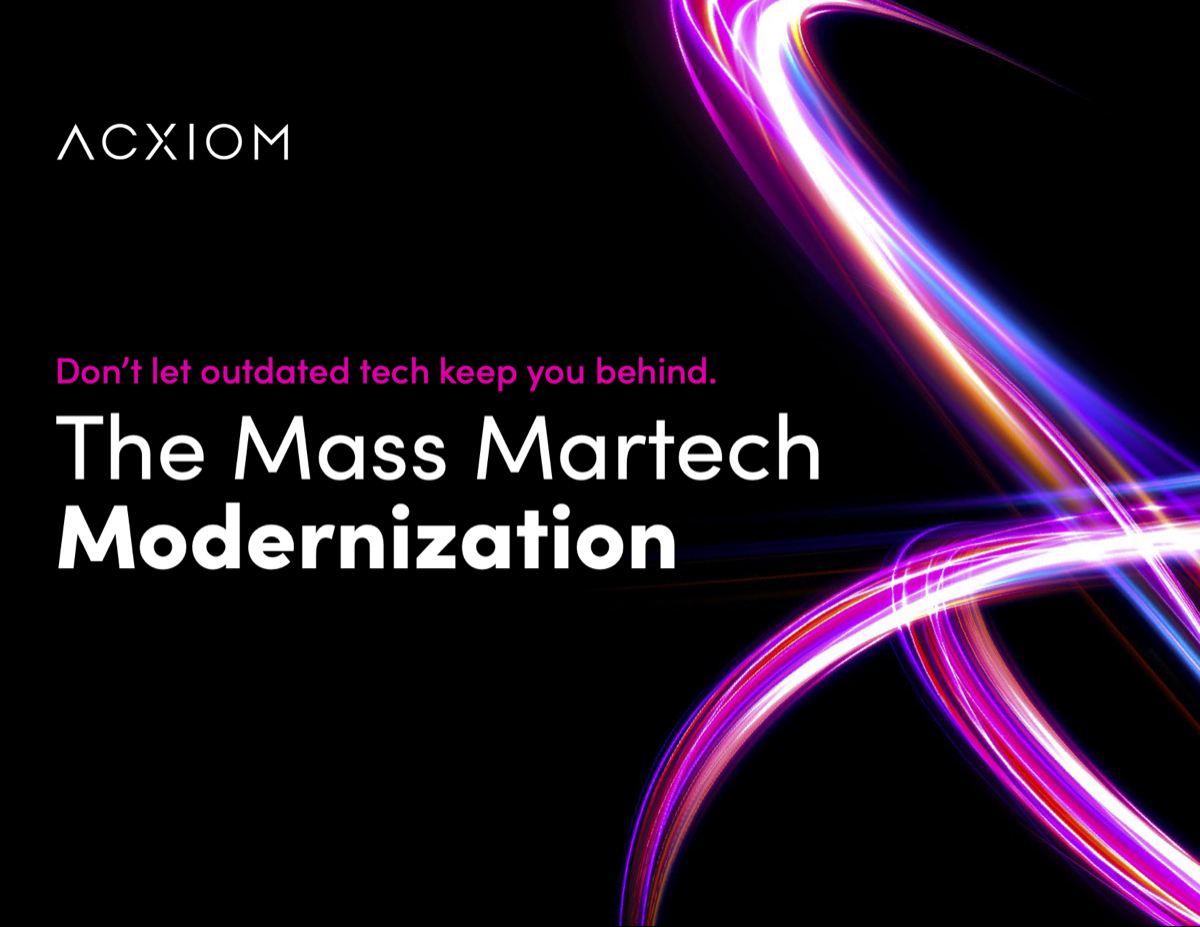Brands across all industries are modernizing their marketing technology (martech) to support new channels, boost performance, and improve customer experience. In fact, a convincing 99% of the brands we surveyed for our report, The Mass Martech Modernization, say they are planning to make changes to their martech stack in the next year.
But effective martech modernization is about far more than just the technology itself. Our report reveals one of the most significant obstacles to successful martech modernization is a lack of internal expertise to implement, integrate, and optimize the company’s martech stack. This isn’t entirely surprising in an industry where technology is evolving at an incredible pace, so trying to keep up with training and reskilling is tricky, to say the least.
The state of brand martech expertise
We surveyed 200 decision-makers from the U.S. and U.K. who have responsibility for martech in their organizations, and only 12% have a dedicated team responsible for all martech operations. Almost half (49%) say different teams are responsible for different aspects of martech, making it difficult to take a consistent, unified approach.
While 59% think they have the necessary internal skills to manage their current martech solutions, only 10% strongly believe this is the case, indicating a general lack of confidence. Interestingly, perception of internal expertise varies greatly by role, with 72% of those who work in IT or technology saying they have the necessary skills internally to manage martech solutions, compared with just 42% of marketing data and analytics professionals.
Perception of expertise also varies by seniority. Only 58% of senior managers say their teams have the skills to manage their martech, compared with 67% of C-suite respondents, which may be a challenge in itself. Although 60% say martech has become a bigger priority for their C-suite over the last few years, those execs may not recognize the need for training or recruiting if they don’t understand the skills gap.
The impact on AI and cloud migration
One impact of this lack of internal expertise seems to be the low rate of adoption of AI-powered marketing technologies. Just over half (54%) of the brands we spoke to haven’t yet implemented AI into their martech stack at all. The majority of those that have are still using it for relatively basic tasks like content recommendation rather than more advanced tasks like customer segmentation.
When we asked how brands expect the evolution of AI to shape their organization’s approach to martech over the next few years, the top answer was increasing investment in marketing teams’ Al literacy and expertise.
As the Director of Marketing at a large U.K.-based insurance provider explained, “We’re not using AI anywhere in the business as yet, but it’s definitely something that we’re thinking about. We’ve some concerns around it from a governance perspective. But mainly, we are in such a world of pain trying to fix the [martech] stack that we’ve got, trying to add something new in, it just feels like now is not the time. We don’t have the technology, and we don’t have the skill set internally to be able to manage it.”
The martech skills shortage is also evident in cloud migration – or lack of it. Despite the cloud’s benefits like efficiency and scalability, brands only host an average of 44% of their marketing operations in the cloud, with the other 56% remaining on-premise. And when we asked about the challenges they face in migrating to a cloud-based martech stack? They saw the biggest obstacle as securing the internal expertise required to guide such a migration.
Other outcomes of insufficient expertise
In addition to low levels of AI adoption and slow rates of cloud migration, our survey revealed other issues that are caused or exacerbated by a lack of internal martech skills:
- Selecting martech solutions: Almost two-thirds (63%) say evaluating martech solutions is confusing due to the complexity of features and functionalities. Only 51% feel confident they can identify the correct solution for their future needs.
- Optimizing the martech stack: A lack of internal expertise makes it hard to integrate marketing technologies and maximize performance. The majority (63%) say martech purchases occur across different teams without effective collaboration, while 66% say overlapping functionality in different martech tools leads to wasted resources and unnecessary complexity.
The Business Change Director at a U.S.-based insurance provider told us, “One thing we’ve been talking about for a long time is fixing the marketing-to-IT relationship. Both own parts of the martech stacks, and it feels like there’s a lot of stepping on one another’s toes and a lot of power moves.”
Overcoming the martech skills gap
Establishing a dedicated martech team is one way to overcome the lack of internal expertise. A dedicated team can bridge different departments and centralize decision-making to ensure collaboration around a unified martech strategy. Our survey reveals that the 12% of companies that have a dedicated martech team have more confidence in martech selection, have solutions that are more suited to their needs, and are more likely to collaborate.
However, with an overall shortage of talent in the martech industry, recruiting a dedicated team with the necessary skills and experience can be challenging, and training up existing employees can take time. Even when brands do have a dedicated team, only 54% are confident in identifying the right martech solutions for the future.
A second strategy is to work with a martech services partner. Leveraging its teams’ extensive industry expertise, a services partner can help brands establish a long-term martech strategy, choose the right solutions for their needs, and integrate and optimize those solutions. A partner can also guide cloud migrations and drive the effective adoption of AI-powered solutions. A martech services partner can work alongside a dedicated internal martech team to ensure a faster time to value as expertise is built within the internal team.
According to the Head of Marketing Strategy at a U.S.-based bank, “There’s so much dysfunction in delivering on strategic technology investments. That’s why it’s so important to have a strategic partnership with an expert third party because they don’t care if we go with Salesforce or Adobe. But what they can do is bring in their experts to tell you what you better be aware of and make sure you’re checking all those boxes.”
To find out more about what’s driving martech modernization, what brands are hoping to achieve, and what challenges they’re facing, read our new report, The Mass Martech Modernization.


